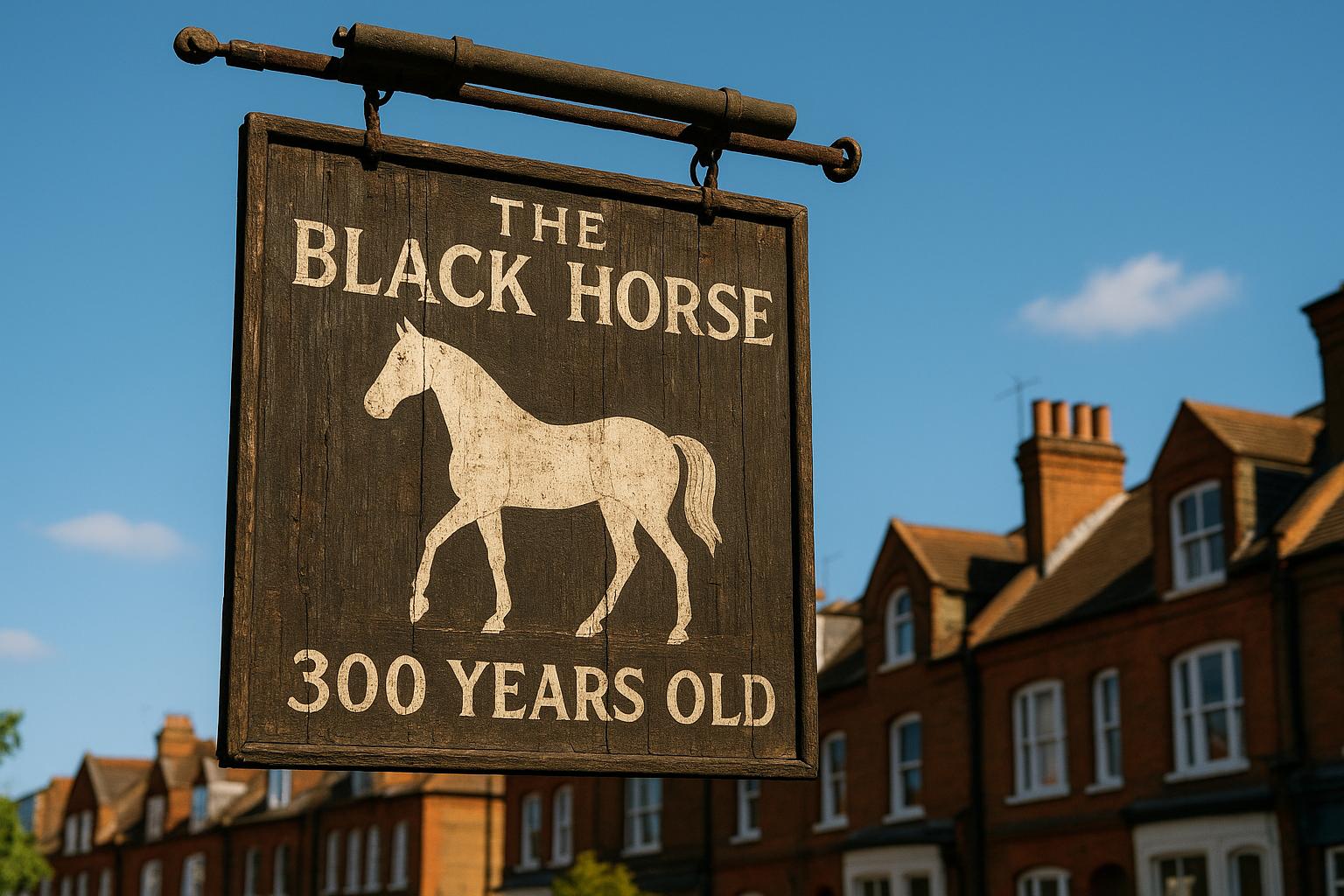A historic London pub with roots tracing back over 300 years faces an uncertain future as local residents rally to safeguard its legacy from potential redevelopment. The Black Horse in High Barnet, believed to have opened in 1720 and situated prominently at the corner of Wood Street and Union Street, closed its doors in September 2025 after its last leaseholder departed. Owned by Star Pubs, the company is actively seeking a new operator with hopes of reopening the venue, but concerns persist among the community about its long-term security.
Thousands of residents have signed a petition urging Barnet Council to recognise The Black Horse as an Asset of Community Value (ACV) under the Localism Act 2011. This designation would formally acknowledge the pub’s importance to the social fabric of the area and give the community the right to bid for the property should it be sold. According to the petition organised via Change.org, the pub is “one of our most cherished” within the local area, having served generations of locals and being ingrained within social and cultural events over centuries.
The campaign has gathered significant momentum, with the petition approaching 2,530 signatures. High Barnet councillor Emma Whysall has voiced her support for the initiative, emphasising that ACV status has previously helped preserve other historic sites in the borough from redevelopment pressures. The case of the Prince of Wales pub in nearby East Barnet was cited, where strong local advocacy led to new owners acquiring the venue, helping it to thrive once again despite not being purchased directly by the community.
Historically, The Black Horse has been a significant local landmark. In its early days, it served as a popular stop during sheep fairs at Barnet Common. The pub’s ownership has changed hands multiple times, including stewardship by Clutterbuck and Co. and later the Cannon Brewery. Among its unique historical features, it once housed the local fire engine in the 1850s and contains a 20-foot deep brick-lined well rediscovered in the 1950s. Local folklore enriches its mystique, with tales of a ghostly figure, an old woman, seen walking slowly through the building, adding a layer of haunted heritage to the site.
Despite the community campaign, Barnet Council has stated that no formal application for ACV status has yet been received, meaning the official process is yet to begin. The council spokesperson noted that once an application is submitted, they will commence the formal review required by law. In the meantime, Star Pubs continues its search for a new operator to bring the historic venue back into use.
In recent years, The Black Horse has also evolved to offer more than just traditional pub experiences. It has incorporated a new dining section, kitchen, patio area, and houses the Barnet Brewery yard, producing its own ales in casks and bottles. This blend of heritage and modern hospitality further underlines the venue’s value both commercially and socially to the local community.
The ongoing efforts to secure ACV status for The Black Horse represent a broader trend seen across the UK, where communities are increasingly mobilising to protect long-standing social hubs from disappearance amid the pressures of urban development and changing commercial landscapes. Whether these efforts will succeed remains to be seen, but the passion and dedication of High Barnet’s residents underline the deep connection between such historic pubs and the lifeblood of communities they serve.
📌 Reference Map:
- [1] (Express) - Paragraphs 1, 2, 3, 5, 6, 7, 8, 9, 10
- [2] (Evening Standard) - Paragraphs 1, 2
- [3] (Barnet Post) - Paragraphs 1, 2
- [4] (Spooky Isles) - Paragraph 5
- [5] (Favourite Table) - Paragraph 9
- [6] (Lemonrock) - Paragraph 9
- [7] (Change.org Petition) - Paragraphs 2, 3
Source: Noah Wire Services
